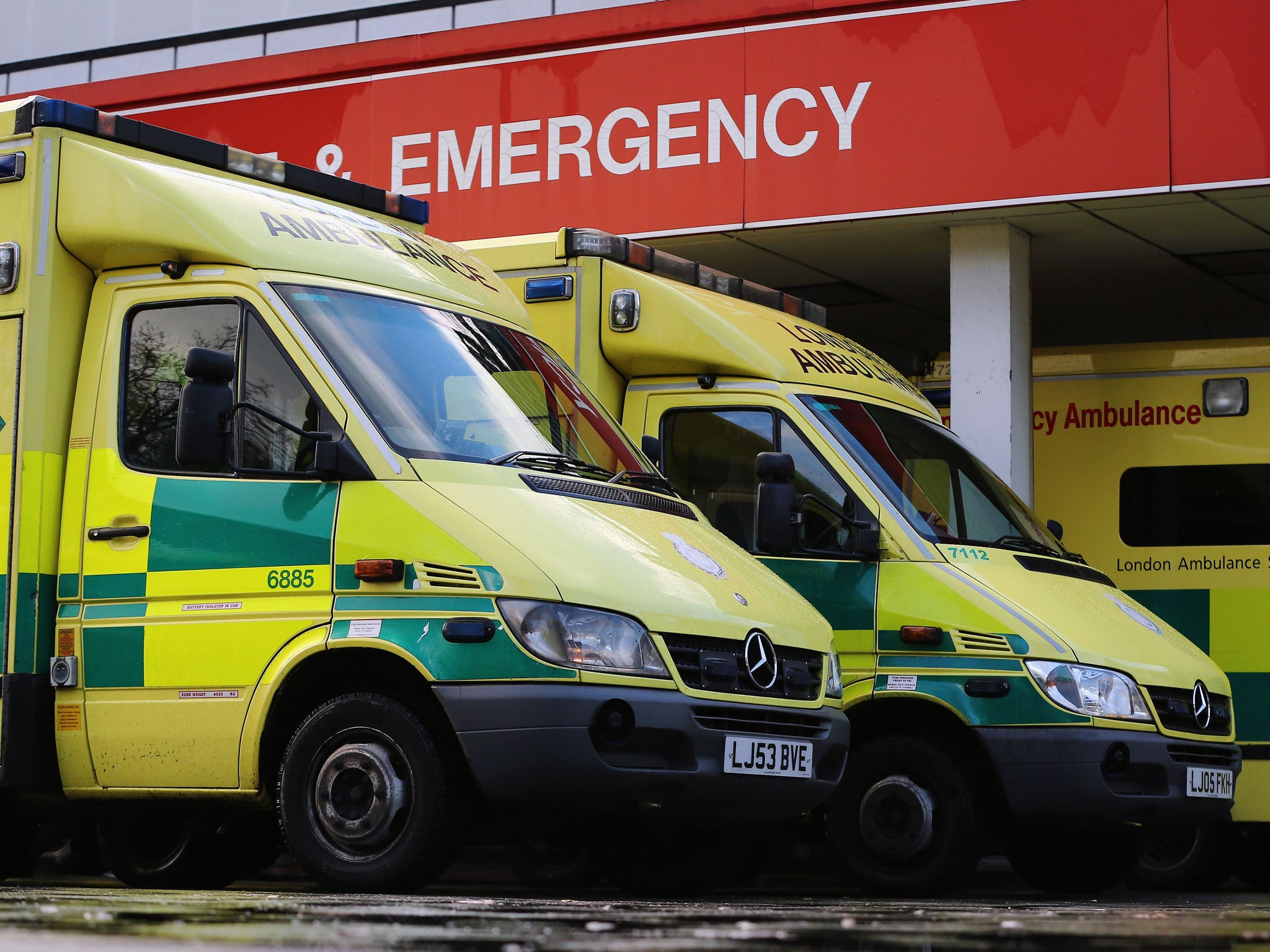Hospital death rates higher at weekends 'because patients are sicker'
Previous research on weekend admissions may not have taken into account severity of conditions, study suggests

Higher death rates observed among patients admitted to hospital during weekends could be linked to the severity of their illnesses, a new study suggests.
Those who attend A&E over the weekend are more likely to have a severe ailment than those who attend during the week, experts say.
Previous research into the so-called “weekend effect” might not have taken into account the higher severity of patients' conditions at weekends, they said.
Health Secretary Jeremy Hunt used his drive to create a seven-day NHS as one of the main reasons for reforming junior doctors' contracts - which led to the biggest walkout of doctors in NHS history.
Mr Hunt has cited studies showing higher death rates at weekends when setting out his argument for a seven-day health service.
Last month, a number of experts including Professor Robert Winston and Professor Stephen Hawking called for an inquiry into the claims made by Mr Hunt.
In a letter published in the Guardian, they said Mr Hunt had “cherry-picked research, causing a devastating breakdown of trust between government and the medical profession”.
The new study, published in the BMJ Quality & Safety journal, found that a higher proportion of patients admitted to hospital at the weekend arrived by ambulance - which researchers say is an important marker of increased illness severity.
Experts from the University of Manchester examined data on three million patients admitted to hospitals across England via A&E during 2013/14.
They found that mortality was found to be significantly higher for patients admitted to hospital throughout the weekend and on Wednesday and Thursday nights.
But when they took into account each patient's “mode of arrival”, they found that only patients admitted via A&E on Sunday daytime had an increased risk of mortality.
The proportion of patients brought in by ambulance was 61% on Saturdays and 60% on Sundays - higher than the average of 57% during week days.
They found that patients arriving by ambulance had much more severe problems, with a mortality rate of 5.5% compared with just 0.8% for patients who did not arrive by ambulance.
“Patients arriving at A&E by ambulance had a higher risk of mortality and higher proportions of patients admitted overnight and at weekends arrived by ambulance,” the researchers wrote.
Lead author Matthew Sutton, professor of health economics at the University of Manchester, said: “We have shown that much of the weekend effect identified in previous studies is likely to be explained by a smaller and on average sicker population of patients being admitted at weekends.
“Arrival by ambulance is a marker of illness severity that has been omitted from the previous studies on which the seven-day services policy is based. Other measures of severity would likely explain the weekend effect away altogether.”
He added: “The seven-day services policy is based on very little evidence. This major omission from the previous studies shows that much more robust evidence is needed to justify the major changes in hospital services that are under way.”
Commenting on the study, Dr Anthea Mowat, chairwoman of the British Medical Association's representative body, said: “These academics are the latest in a long line of health professionals and leading experts to challenge the use of figures on weekend mortality rates. It is really a far more complicated picture than what has previously been portrayed.
“The BMA believes patients should have access to the same high quality of care, seven days a week. If the Government want to make more services available across seven days, then it needs to explain how it will staff and pay for them at a time when existing services are struggling to keep up with demand.”
Subscribe to Independent Premium to bookmark this article
Want to bookmark your favourite articles and stories to read or reference later? Start your Independent Premium subscription today.

Join our commenting forum
Join thought-provoking conversations, follow other Independent readers and see their replies